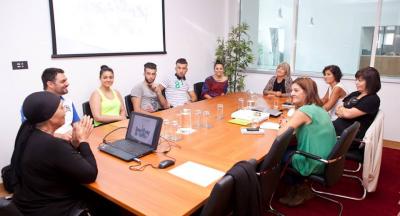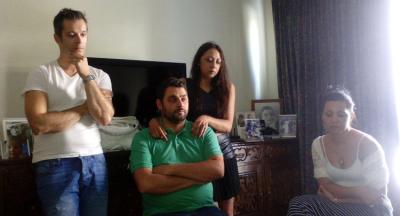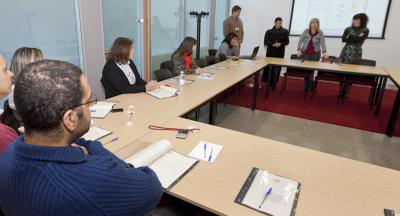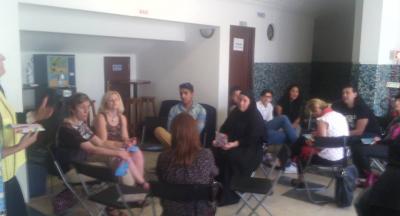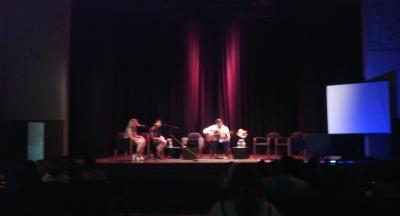Seixal
Portugal Country Findings of the external evaluation by Blomeyer and Sanz s.l. available in Portuguese and English.
*Disclaimer: The information and views set out in this page are those of the author and do not necessarily reflect the official opinion of the Council of Europe and/or the European Commission. Neither the Council of Europe, the European Commission nor any person acting on their behalf may be held responsible for the use which may be made of the information contained therein.
Seixal is a Portuguese city in the district of Setúbal, Lisbon region and sub-region of the peninsula de Setúbal, with about 31 600 inhabitants, situated across the Tagus River estuary from Lisbon and next to the Rio Judeu ("Jewish River"). Seixal is the seat of a municipality with an area of 93.58 km², subdivided into six parishes. It has 160,000 inhabitants (2011), which makes it one of the eight most inhabited municipalities in Portugal.
Roma families in Seixal live in various neighborhoods (Cucena, Quinta da Princesa, Arrentela, Jamaica), most of them places of diversity – living alongside African communities and of other former Portuguese colonies. These neighborhoods have generally lower living standards than the rest of the city, being perceived as ghettos and associated with criminality, drug trafficking, illiteracy and unemployment. Within these neighborhoods tensions between communities seem to be on the rise, mainly due to the economic crisis and a more and more acute lack of resources for decent living conditions.
The Roma communities of Seixal are very heterogeneous, with families of very different inclusion levels, many working at fairs and markets, while others relying on social welfare for their monthly income.
In the 2000s, in Seixal was created the first ever Roma women’s association in Portugal, led by Ms Olga Mariano – today facilitator for the ROMED2 Programme in Portugal.
The Community Action Group in Seixal is made of young members, a core group of 9 members and up to 15 members participating in CAG meetings.
Women are particularly dynamic within the group, they are 5 in total. Women’s presence in the CAG is also a direct result of the years of influence from the first Roma women’s association in Portugal which exists in Seixal for over 15 years.
Short term priorities of the CAG in Seixal:
- * Organising an intercultural event to help combat anti-gypsyism (done);
- * Conduct regular food collection initiatives and redistribute;
- * Provide 4 positions within the Municipality for Roma (gardening, mediation, handyman, kitchen assistant, etc.);
Long-term priorities of the CAG in Seixal:
- * Reduce unemployment in the municipality;
- * Fighting anti-Gypsyism;
- * Organisation by the CAG in Seixal of an annual congress of Evangelical Roma (set on the 6th of November every year);
- * Provision by the municipality of the premises (old wool mill) for the Congress (1000 people minimum) as well as lend technical equipment for the event;
The municipality started drafting the Municipal Plan for Roma communities in Seixal for 2016, for which they met with the CAG. In December 2015, the team and the CAG had numerous meetings with the municipality for preparing a cultural event for February 2016, where they want to do a photo exhibition, named "50 years of Roma in Seixal".

